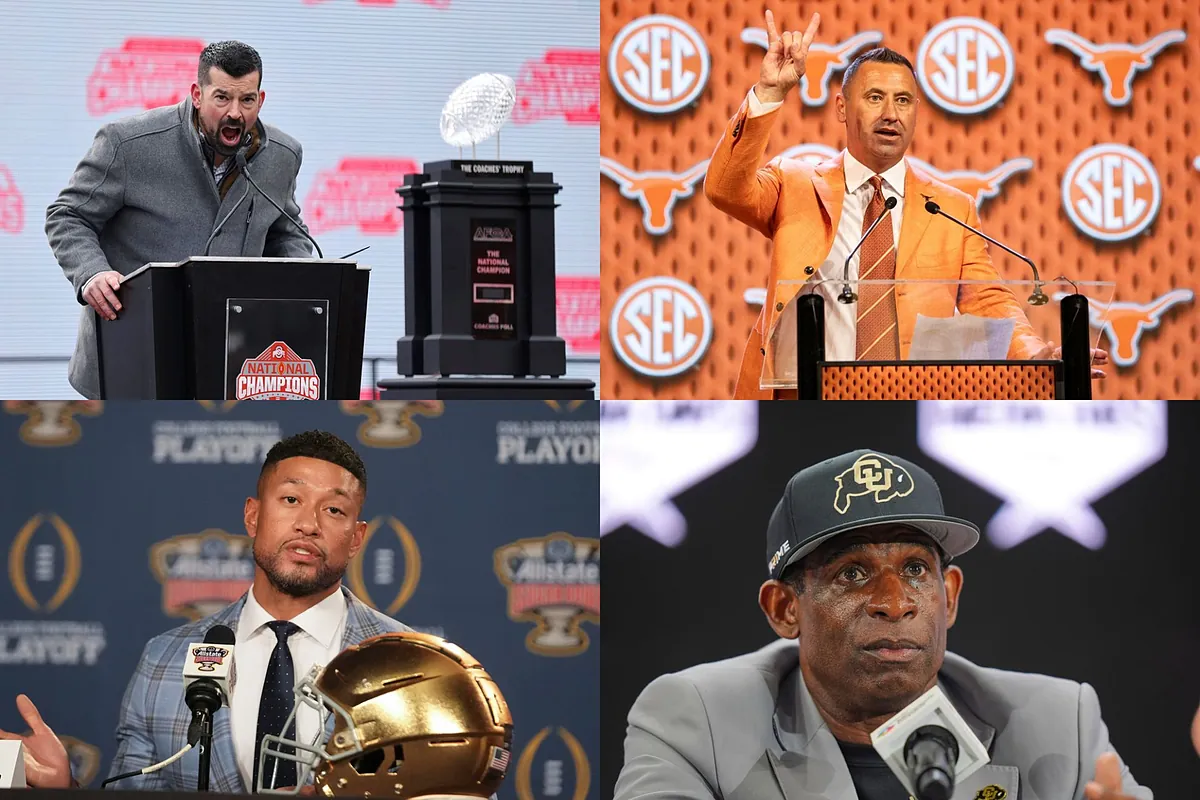A growing chorus of College Football coaches across conferences is highlighting the same potential fix for the sport's heightened instability: establishing a coaches' uni
Why it matters
- The instability in college football has created significant challenges for coaches, players, and programs alike.
- A unified coaching body could lead to more consistent regulations, benefiting the integrity of the sport.
- Addressing these issues may help retain talent and improve the overall competitive landscape of college football.
In recent discussions, a growing number of college football coaches from various conferences have voiced their concerns regarding the increasing instability within the sport. This dialogue has led to a consensus that a potential remedy lies in the establishment of a unified coaches' association. By creating a cohesive organization, these coaches believe they can better navigate the complexities and challenges facing college football today.
The call for a coaches' union comes amid a backdrop of rapid changes in college athletics, including the influence of the transfer portal and NIL (Name, Image, Likeness) deals. These developments have significantly altered the landscape of college football, resulting in heightened competition for talent, resources, and attention. Coaches are now grappling with the need to adapt to these shifts while maintaining the integrity of their programs and the sport.
Many coaches argue that the absence of a unified structure has contributed to an environment of uncertainty. Players are more frequently transferring between programs, and the influx of NIL deals has created disparities in recruiting capabilities among different schools. This has raised concerns about fairness and competitive balance, leading coaches to call for a formalized system that could establish clearer guidelines and standards across the board.
Supporters of a coaches' union contend that it would empower them to collectively address these challenges rather than facing them in isolation. By joining forces, coaches could advocate for policies that promote stability and equity within college football. This could include negotiating regulations regarding player transfers, NIL agreements, and scholarship limits, among other essential topics.
The idea of a coaching union is not entirely new, as similar structures exist in professional sports, such as the NFL and NBA, where players and coaches benefit from collective bargaining agreements. Advocates for the proposal suggest that a comparable framework could enhance the operational effectiveness of college football. They believe that a unified voice would not only allow coaches to negotiate better conditions for their programs but also ensure that student-athletes are treated fairly and equitably.
As discussions continue, some coaches have begun to outline specific initiatives that a coaches' union could pursue. For instance, they may work towards establishing minimum standards for coaching salaries, improving job security, and advocating for better resources for athletes, including mental health support and academic assistance. These measures could significantly impact the overall experience of student-athletes, promoting their well-being and success both on and off the field.
The potential formation of a coaches' union has garnered mixed reactions. While many coaches are enthusiastic about the prospect of a collective bargaining entity, others express skepticism regarding its feasibility and effectiveness. Concerns about the logistics of establishing such an organization, as well as potential pushback from athletic directors and university administrations, have been raised.
Furthermore, detractors argue that the unique nature of college athletics, with its ties to educational institutions, complicates the establishment of a traditional union model. They suggest that the focus should instead be on fostering dialogue between coaches and administrators to address the concerns raised by coaches without formalizing a union.
Despite these challenges, the conversation surrounding a coaches' union reflects a broader recognition of the need for change in college football. As the sport faces unprecedented challenges, it is evident that coaches are seeking a proactive approach to ensure the future stability and integrity of the game they are passionate about.
In conclusion, the call for a unified coaches' association is a critical step in addressing the instability plaguing college football. By working together, coaches believe they can create a more equitable and stable environment for programs and student-athletes alike. As the discussions evolve, it will be essential to monitor how these ideas translate into action and what impact they may have on the future of college football.











